2022 Scholarship and Research Grant Awardees
Graduate Scholarship Awardees
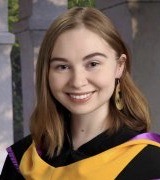 Laney Beaulieu
Laney BeaulieuWestern |
My name is Laney Beaulieu and I am Dene and Metis from the community of Fort Resolution (Deninu K'ue), Northwest Territories. My spirit name is Dream Weaver and my role within my community has always been to weave together Western and Indigenous ways of knowledge for the betterment of my people. I am currently working towards this goal as both a medical student at Schulich School of Medicine and as a researcher at Western University where I am currently completing a project on Dene conflict resolution techniques as a method of communication and reconciliation between Indigenous ad non-Indigenous groups. In the future I plan to return to the Northwest Territories to work as a doctor and continue my work in Indigenous wellbeing research. |
 Arielle Bressette
Arielle BressetteWestern |
My name is Arielle and I am Ojibwe from the Kettle and Stony Point First Nation in Southwestern Ontario. I graduated from Western University with a Double Major in Criminology and Sociology. I am currently continuing my studies at Western with a Master of Professional Education with a focus on Leadership in Indigenous Education. Within my Master’s program, I will explore how best to transfer the personal health and wellness outcomes that I benefited from as an individual to broader system-wide application for the benefit of other Indigenous youth and the generations yet to come. Overall, I want to see Indigenous peoples succeed. My work within my community has revealed how health and well-being must be essential cornerstones for programming to support struggling Indigenous people’s move beyond mere survival. I plan to use my post-secondary education within an applied Indigenous health community context to ensure that mental health and well-being become essential building blocks within health and enforcement. |
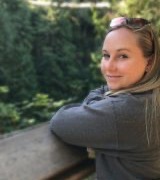 Brittany McBeath
Brittany McBeathQueen's |
Brittany McBeath is a Kanyen’kehá:ka (Mohawk) woman with roots in Tyendinaga Mohawk Territory. She is a Ph.D. candidate studying under the supervision of Dr. Lucie Lévesque in the School of Kinesiology and Health Studies at Queen’s University. Brittany is pursuing community-engaged research within the diverse field of Indigenous Health Promotion. To date, her research and training has been done in partnership with the Kahnawà:ke Schools Diabetes Prevention Program’s Community Mobilization Training. Her doctoral work will explore the contexts, mechanisms, and outcomes of successful community mobilization efforts for the promotion of healthy lifestyles and community wellness within various First Nations communities. She is also passionate about positive youth development and the revitalization of Indigenous language and culture. |
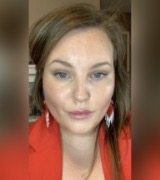 Alexandra Nychuk
Alexandra NychukMcMaster |
Alexandra Nychuk is a Michif PhD student and citizen of the Manitoba Métis Federation, with family ties to the Fort Ellice area, her family names are Fleury, Peppin, Tanner, and Fiddler. Alexandra was born and raised in Treaty One Territory and is a member of the Bison Local. Alexandra completed an Undergraduate degree in Athletic Training from Minot State University in 2015. She is a recent graduate from the University of Winnipeg’s Master’s in Development Practice-Indigenous Development program. Alexandra is currently pursuing a PhD in Health, Aging, and Society at McMaster University under the supervision or Dr. Chelsea Gabel. Alexandra intends for her perspective research to focus on connection between Métis identity and Inflammatory Bowel Disease using an Arts based Body Mapping Method. |
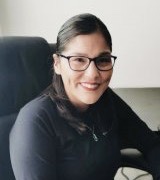 Molly Peters
Molly PetersTrent |
Molly Jean Peters is a proud Mi’kmaq woman from Paqtnkek Mi’kmaw Nation, Mi’kma’ki (NS). She graduated from Trent University with a B.A. degree in Indigenous Studies and is a currently in the Masters of Sustainability Studies program at Trent University. She has previously worked as the Aboriginal Student Advisor for STFX University. In her community Molly held several positions including the NADACA Field Worker (addictions), the Community Facilitator - PATHway’s Project, the Community Facilitator - Preventing and Responding to Sexual Violence Project and an elected Band Councillor for the Paqtnkek Mi’kmaw Nation which sparked and deepened her passion for community development and social justice activism. She has also volunteered hundreds of hours to her community at cultural and community functions, on committees, facilitating workshops, and in crises response and resource sharing. Through her community development efforts across the years, especially through her work with the Paqtnkek SVPR Project and on subsequent projects Advisory Committees, Molly has contributed to advancing the sexual violence prevention and response efforts in Paqtnkek, through an Indigenous community perspective. Her graduate research will further this valuable community work by developing culturally relevant, culturally safe and sex-positive sexual consent educational resources for community members, for all ages and genders. |
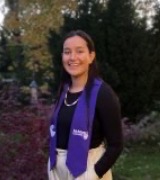 Maggie Powless-Lynes
Maggie Powless-LynesToronto |
Maggie Yakorennio Powless-Lynes is Mohawk Wolf clan and Scottish/English from Six Nations of the Grand River Territory. She is honoured to have been chosen as an Ontario Indigenous Mentorship Network Scholar! She completed her Bachelor of Science in Biochemistry at McMaster University in 2021 and is now in her first year of the Master of Public Health in Indigenous Health program at the University of Toronto. Her research interests are focused on understanding racism and colonialism as determinants of health and working to reduce harm and increase benefit of scientific research for Indigenous communities. |
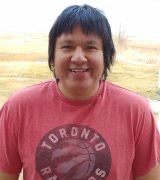 Justin Sackaney
Justin SackaneyNipissing |
Justin Sackaney is Mushkegowuk Cree with connections to Attawpiskat, Kashechewan, Fort Albany and Constance Lake. He is currently enrolled in the Master of Education program at Nipissing University. His background is working in the field of education and youth development, mostly working with Indigenous youth throughout the Northeastern Ontario region. His biggest passion revolves around sport, whether it’s playing or sharing via coordinating sporting events for youth. He gratefully acknowledges his Nipissing University supervisors and co-authors in his Master of Education journey, Dr. Cindy Peltier, Dr. Colin McLaren and Dr. Mark Bruner. |
Undergraduate Awardees
 Brooke Gelinas
Brooke GelinasWestern |
Brooke Gelinas is a fourth-year biology student at Western University. She strives to promote diversity, equity and social inclusion at Western University and in the community to build respectful and mutually beneficial relationships with students, community members and Indigenous communities. As Western University’s Métis Nation of Ontario Infinite Reach Facilitator, she helps incoming students adjust to university life while encouraging the maintenance of traditional Métis values and practices. Brooke’s research interest is rooted in Indigenous health promotion. She is currently assessing health behaviours during COVID-19 and the knowledge of dementia and dementia risk factors among Indigenous older adults in the Exercise and Brain Health Mobility Lab. Study findings may help highlight areas for improved dementia literacy and healthy lifestyle resources for the Indigenous population to promote improved physical and cognitive health. Her personal interest stems from a desire to find ways to improve the health of Indigenous populations and her passion for science. |
 Emma Gelinas
Emma GelinasWestern |
Emma Gelinas is a first-year Health Science student at Western University. Emma finds it rewarding to share knowledge and skills with others both as a youth dance instructor and as an Indigenous Student Senator serving as the voice on the school board for Indigenous students and Wahgoshig First Nation. As a member of the Métis community, Emma was a founding member of her school's Truth and Reconciliation Committee to help students and community members of all ages learn about Indigenous people and become lifelong allies. Emma also hosted camps for Indigenous youth, captained her school volleyball team and served as student council president. Emma looks forward to continuing to share her passions with the Western University community. |
Research Grant Awardees
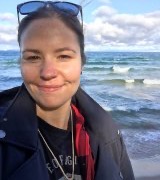 Rebecca Beaulne-Steubing
Rebecca Beaulne-SteubingYork |
Rebecca Beaulne-Stuebing (she/they) is Métis, with roots in the Sault Ste. Marie Métis community and Manitoba through Belanger, McGregor, and Riel families, registered with the Métis Nation of Ontario. She belongs with the bald eagle clan in Anishinaabe governance through adoption in the Three Fires Midewiwin lodge, and her family is also of Austrian settler ancestry. Rebecca is completing a PhD in social justice education at the Ontario Institute for Studies in Education, and teaches in the Faculty of Education at York University. |
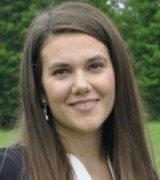 Kaitlyn Patterson
Kaitlyn PattersonQueen's |
Kaitlyn Patterson. I am a mixed-ancestry Algonquin Anishinaabekwe from the Loon Clan with my Algonquin roots in Mattawa. I am also a member of the urban Indigenous community within Katarokwi, Ontario (greater Kingston area), having lived north of Kingston in Rideau Lakes for most of my life. I am a doctoral candidate at Queen’s University and a registered dietitian. I am passionate about Indigenous food sovereignty in Katarokwi, which will be the focus of my proposed postdoctoral research. This community-based research explores IFS urban movements using storytelling methods in partnership with Indigenous communities in the Kingston and Waterloo-Wellington Regions within Ontario. The project will document the impacts of Indigenous land reclamation towards self-determination and wellbeing and explore strategies to address colonial policies that hinder Indigenous Peoples’ access to land within urban environments. Documenting these local initiatives will affirm Indigenous self-determination and land stewardship as important components of IFS and empower urban Indigenous Peoples in these regions and elsewhere who are championing IFS. Colonialism is a structural determinant of poor health among Indigenous Peoples; land back offers a decolonized approach to achieving health equity and increasing control over food systems and environments. |
|
Brittany McBeath |
Brittany McBeath is a Kanyen’kehá:ka (Mohawk) woman with roots in Tyendinaga Mohawk Territory. She is a Ph.D. candidate studying under the supervision of Dr. Lucie Lévesque in the School of Kinesiology and Health Studies at Queen’s University. Brittany is pursuing community-engaged research within the diverse field of Indigenous Health Promotion. To date, her research and training has been done in partnership with the Kahnawà:ke Schools Diabetes Prevention Program’s Community Mobilization Training. Her doctoral work will explore the contexts, mechanisms, and outcomes of successful community mobilization efforts for the promotion of healthy lifestyles and community wellness within various First Nations communities. She is also passionate about positive youth development and the revitalization of Indigenous language and culture. |


